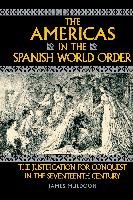Juan de Solorzano Pereira (1575-1654) was a lawyer who spent eighteen years as a judge in Peru before returning to Spain to serve on the Councils of Castile and of the Indies. Considered one of the finest lawyers in Spain, his work, De Indiarum Jure, was the most sophisticated defense of the Spanish conquest of the Americas ever written, and he was widely cited in Europe and the Americas until the early nineteenth century.
His work, and that of the Spanish School of international law theorists generally, is often seen as leading to Hugo Grotius and modern international law. However, as James Muldoon shows, the De Indiarum Jure represents the fullest development of a medieval Catholic theory of international order that provided an alternative to the Grotian theory.


